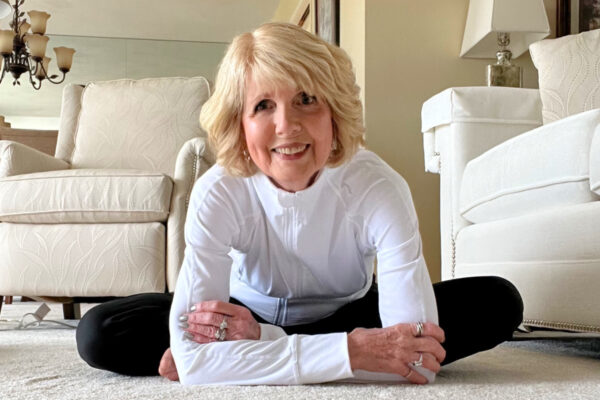Do you feel you have a sense of purpose in midlife?
Why or why not?
Commonly-held expectations for a well-executed middle age involve enjoying things like kids and/or grandkids, an established career, your highest lifetime earnings, and generally a sense of stability and fulfillment.
A sense of generativity
Decades ago, Erik Erikson, a luminary of psychology, put it a little differently.

He determined that the key developmental task at this stage of life is to develop a sense of generativity: that your life is purposeful and matters; that it has made a difference.
The alternative?
Experiencing a sense of stagnation that, left untended, can lead to despair in old age.
By the time some people reach middle age, they’ve established a healthy sense of identity, roles in life that feel fit well, and a history of checking off generally-accepted developmental milestones pretty much on schedule.
For these people, middle age is mostly a time for allowing that identity to consolidate and mature, and settling in to the meaning and purpose that naturally flow from the kids, career, and all the rest.
Of course, it doesn’t always happen so neatly. If you’re not feeling a sense of purpose in midlife, read on.
When you’re nontraditional but content
Some people enter middle age without a family of their own to gather around for holiday get-togethers, or other of those traditional markers of middle-age success, but are still perfectly happy with the way their lives are shaping up.
These people probably have a history of being guided by their own internal compass and prioritizing personal growth, and allowing external circumstances to work out as they will.
If this sounds like you, successfully navigating midlife will simply require more of the same.
Your sense of purpose may not naturally spring from your family or career achievements, which doesn’t mean there isn’t meaning, just that you have to make meaning from the choices that you have made, and the way things have worked out.
It can be helpful to get a pencil and paper and draw out a timeline of your life, complete with a line reflecting the ups and downs.
Each time the graph changes direction, you learned something new about the world or yourself.
What were they?

Also read: The positive side of a midlife crisis
When you’re not content
Other middle aged people aren’t all that happy with the way things have gone so far.
I’ve had many coaching and psychotherapy clients who fall into one of two categories: they’ve either never felt much in the way of deep satisfaction with life, or they have all of the traditional markers of success, and felt for many years that they were satisfied, but now feel a sense of emptiness or longing.
They might question what they’ve done with all those years, and might even experience a sneak preview of that old-age despair.
These situations are trickier than those of the nontraditional-but-content folks, because they indicate that your current life might be misaligned with the needs and capacities of your deepest, most genuine self.
Your task, then, is to identify, meet, and exercise those.
Here are a few ways you can get started.
• Pay attention to the activities you gravitate toward in your free time. What part of you do they speak to? Is there anything else you can do to attend to them?
• List your most favorite and admired people, and then list their qualities. Chances are they you would like to have those qualities, or have them to a greater degree, yourself. What can you do to cultivate them?
• When you’re feeling most satisfied with your life, who are you with? What are you doing? What is the environment like? What do those answers say about what’s important to you? And what can you do to bring about those conditions more often?
The effort is worth it
It may take effort to make sure your life is oriented toward the satisfaction of the most genuine part of yourself, and that you know—and feel deeply—that your life matters.
I’ve given you some exercises you can try at home, but I’d also recommend seeking guidance from a third party, like a coach or therapist, given what’s at stake.
Any effort you make now is an investment in what is arguably the best, most important reward available to a human being.
It’s the ability, in old age, to reflect upon your life, with its twists, hills, and valleys and say, “Job well done.”






Leave a Reply